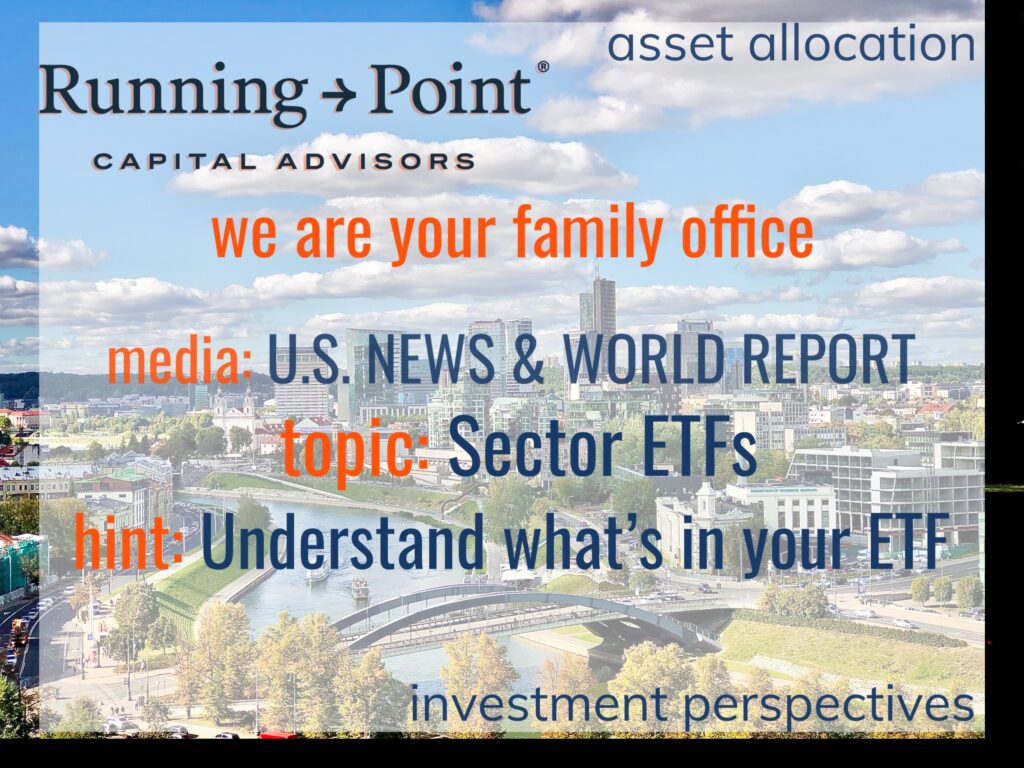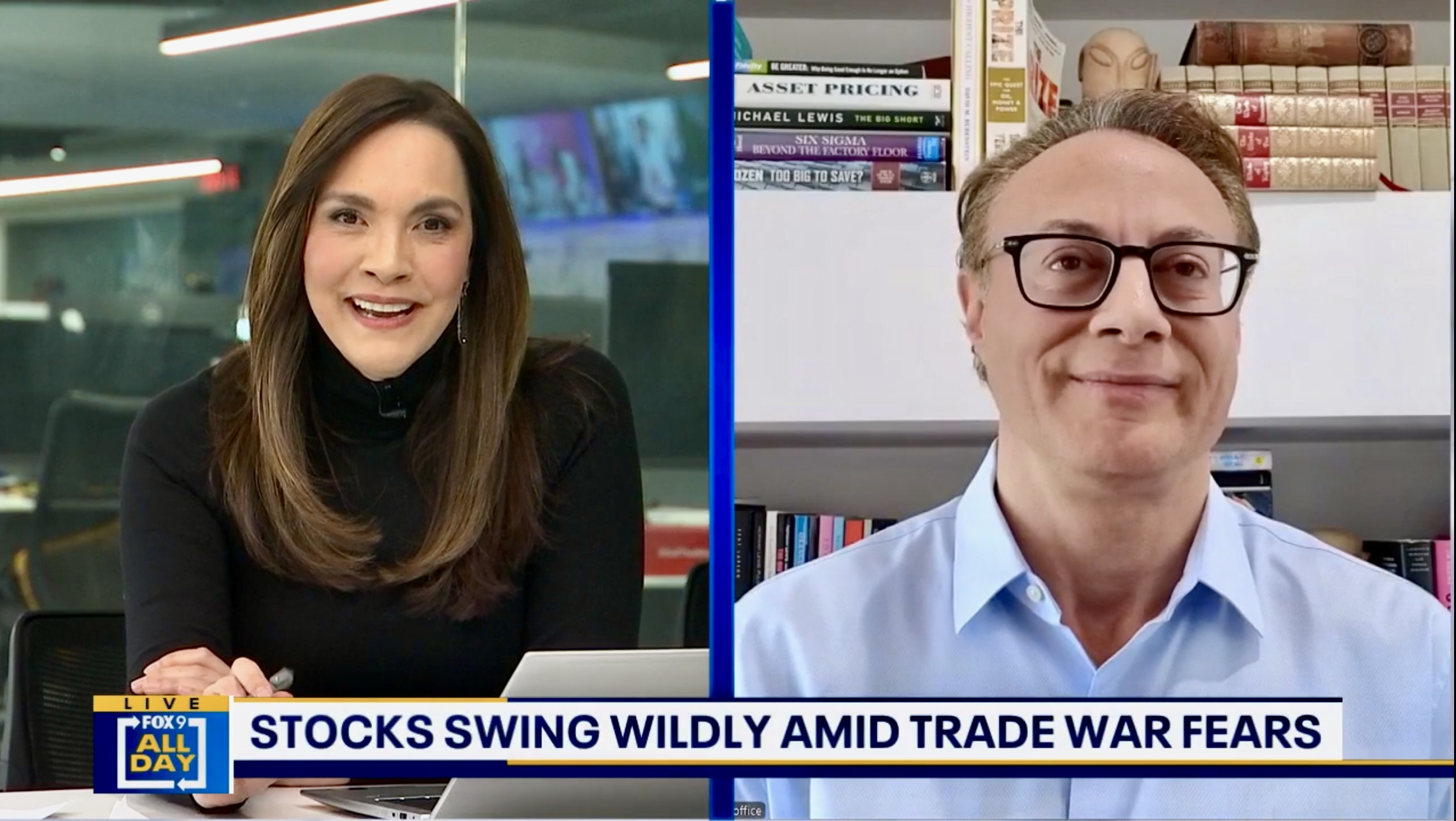Sector ETFs as a satellite investment
Running Point and its chief investment officer, Michael Ashley Schulman, CFA were quoted by U.S. News & World Report in an article — by reporter Tony Dong, “7 of the Best Ways to Invest $5,000” — regarding creative and astute ways to invest a small windfall.
Sector ETFs as a satellite investment alongside your core as a way to speculate with guardrails
Sector rotation is tough
If you plan to trade in and out of your satellite sectors, you may be able to adapt your portfolio quickly to changing market dynamics, enabling you to take advantage of opportunities or mitigate risks as market conditions evolve; however for most people and even many professionals, effective sector rotation is a difficult and time consuming long shot!
Sector ETFs, convenient but watch carefully
Sector ETFs offer convenience and easy diversified focus within a particular industry or specific sector of the economy, but often come with expense ratios slightly higher than basic index ETFs, as well as specific concentration risks within their named sector. Understanding the factors that affect the specific stocks within a sector ETF, especially those with the largest weighting, is critical. We often aim to limit or right-size investments in sectors to balance potential growth against the economic, regulatory, or cyclical risks they face. One should prudently watch them.
Understand what is and isn’t inside your sector ETF, the results may surprise you
When selecting a sector ETF, try to examine its underlying holdings. Does the ETF contain the names of companies you expect or desire? For example, Amazon and Netflix are usually considered technology companies, but for the purposes of S&P sector classification, they are considered consumer discretionary stocks. Thus, although they may be found in some broader technology ETFs, they won’t be found in sector-specific technology ETFs [like Technology Select Sector SPDR (XLK) and the iShares U.S. Technology ETF (IYW)].
A Monster of a time
Successful stock picking is not an easy feat, and similarly, one should not think that market-beating sector selection or sector rotation is simple. Technology has been the best-performing stock sector over the last 20 years. However, oddly enough, the best-performing S&P500 stock over that same time period isn’t a tech name; it’s Monster Beverage, which is in the consumer staples sector.
Note: Maybe that is not entirely uncorrelated, as a lot of techies could have been drinking Monster beverage over the last two decades to stay up all night programming.
Past performance
The information technology, healthcare, and consumer discretionary sectors tend to be the strongest performers over time. However, of those, only technology has beaten the S&P500 over the last 10 years. Over a slightly longer period of 16 years, since the beginning of 2008, four out of eleven stock sectors — information technology, healthcare, consumer discretionary, and consumer staples — outperformed the S&P500. Energy, real estate, communication services, utilities, materials, and financials, while providing decent diversification, have tended to underperform the main index over long periods of time, while the performance of industrials has hovered a little below the S&P500. Of course, know that past performance for any sector is not a promise of future returns.
Quoted article excerpt is below:
“Using a sector ETF as a satellite for your core investments may enable you to capitalize on trends and opportunities within a particular sector that you believe could outperform the broader market,” says Michael Ashley Schulman, partner and chief investment officer at Running Point Capital Advisors. “Sector selection involves more work and input on your part but allows you to tailor your investments to align with your expectations for specific industries.”

A good ploughman can plough even with a goose.
Lithuanian proverb
Disclosure: The opinions expressed are those of Running Point Capital Advisors, LLC (Running Point) and are subject to change without notice. The opinions referenced are as of the date of publication, may be modified due to changes in the market or economic conditions, and may not necessarily come to pass. Past performance is not indicative of future results. Forward-looking statements cannot be guaranteed. Running Point is an investment adviser registered with the U.S. Securities and Exchange Commission. Registration does not imply a certain level of skill or training. More information about Running Point’s investment advisory services and fees can be found in its Form ADV Part 2, which is available upon request. RP-23-121


